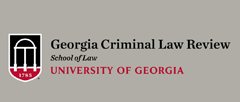Georgia Criminal Law Review
Document Type
Article
Abstract
The federal mens rea for accomplice liability—important in its own right and also as an example to the states—is unsettled. Three cases from the just completed Supreme Court term hint (somewhat surprisingly) at various directions the justices might take. This essay examines the cases with a particular focus on the alternative explanations that might be given for the traditional requirement of purposeful facilitation for accomplice liability. The purpose requirement is contestable so long as it is justified in terms of a narrow conception of culpability. It is better understood as serving a liberty-enhancing function. The liberty focus clarifies difficult questions regarding the elements of an offense for which purpose should be required and, to a degree, validates the legal-wrong approach to mens rea. It also illuminates the common problem of when an actor who purposely facilitates one crime should be liable for a different crime committed by the principal, suggesting a problem with the Model Penal Code’s approach.
Recommended Citation
Cole, Kevin
(2024)
"Purpose’s Purposes: Culpability, Liberty, Legal Wrongs, and Accomplice Mens Rea,"
Georgia Criminal Law Review: Vol. 2:
No.
1, Article 2.
Available at:
https://digitalcommons.law.uga.edu/gclr/vol2/iss1/2

